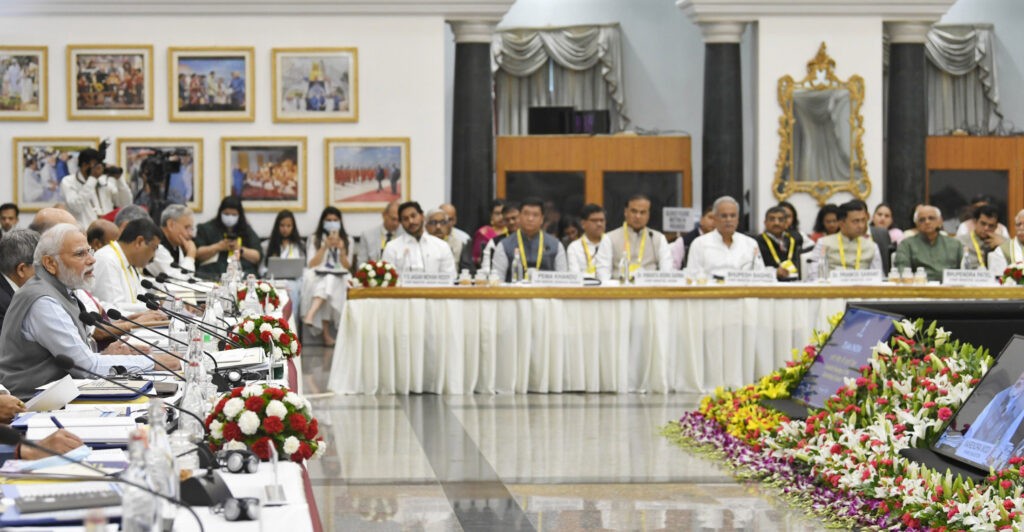This was the first physical meeting of the Governing Council since the onset of the pandemic which was attended by 23 chief ministers (CMs), three lieutenant governors (LGs) and two administrators and union ministers.

New Delhi: Prime Minister Narendra Modi on Sunday said that the collective efforts of all the states in the spirit of cooperative federalism as the force that helped India emerge from the Covid pandemic. Modi, participating in the seventh meeting of the Governing Council (GC) of NITI Aayog, said that every state played a crucial role according to its strength and contributed to India’s fight against Covid. This led to India emerging as an example for the developing nations to look up to as a global leader.
This was the first physical meeting of the Governing Council since the onset of the pandemic which was attended by 23 chief ministers (CMs), three lieutenant governors (LGs) and two administrators and union ministers.
The PM said India’s federal structure and cooperative federalism emerged as a model for the world during the Covid crisis. He said that India had sent a powerful message to the developing nations of the world—that it is possible to overcome challenges with resilience despite resource limitations. The PM said that the credit for this goes to the State Governments, which focused on grassroots delivery of public services to the people through cooperation across political lines.
Modi highlighted that the seventh meeting was a culmination of months of rigorous brainstorming and consultations between the Centre and States to identify national priorities. “All Chief Secretaries met together in Dharamshala and over three days, deliberated issues of national importance. This collective process led to the development of the agenda for this meeting,” the PM said.
He said that the importance of all of the above issues, especially the need for India to focus on modernized agriculture, animal husbandry, and food processing to become self-sufficient and a global leader in the agriculture sector. He said rapid urbanization can become India’s strength instead of weakness by leveraging technology to ensure ease of living, transparent service delivery, and improvement in the quality of life for every citizen of urban India.
The PM also spoke about India’s G20 presidency in 2023 and called it a unique opportunity to show the world that India is not just Delhi—it is every State and Union Territory of the country. The PM said we should develop a mass movement around G20. This will allow us to identify the best talent available in the country. He also said there should be a dedicated team for G20 in the States to derive the maximum possible benefit from this initiative. Speaking about this, the Union Minister of External Affairs, Shri S. Jaishankar, said, “The G20 Presidency presents a great opportunity and a great responsibility. For the first time in the history of G20, India will host the G20 meetings over the year, not only in Delhi, but in every State and Union Territory.”
